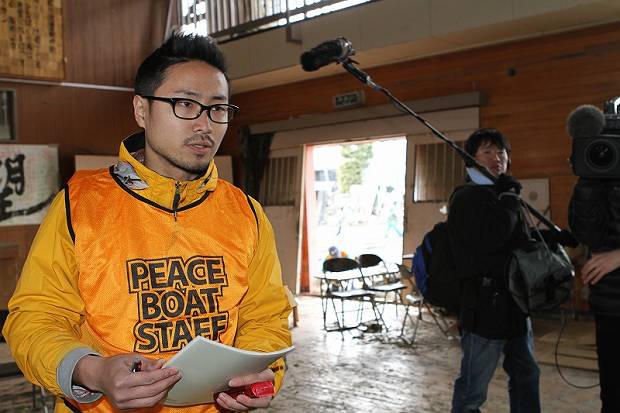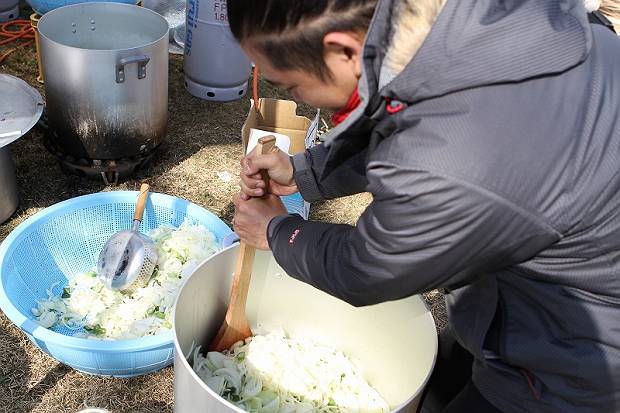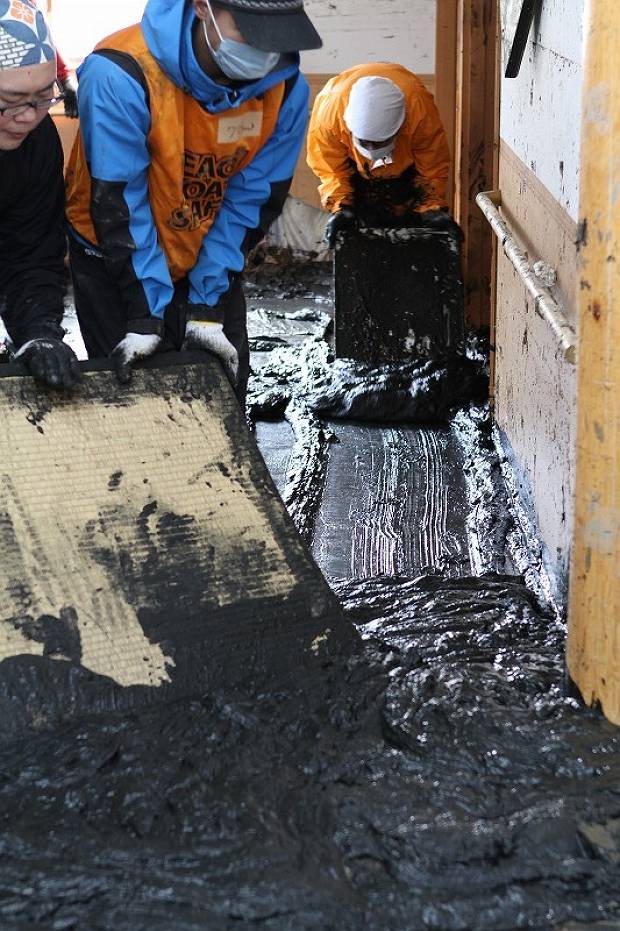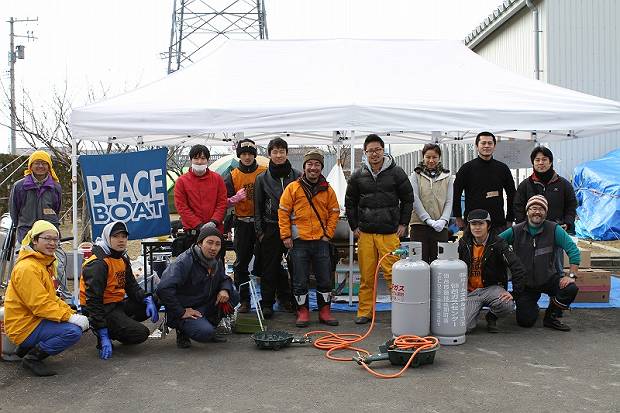
Activity Reports
Interview with Relief Project Coordinator – “Every little bit helps”
May 30, 2011

“Every little helps. All you need is empathy, to put yourself in the shoes of the survivors,” states Ueshima Yasuhiro. He urges members of the public to volunteer in relief efforts in the affected areas.

As of late May, Peace Boat is providing between 1,000 and 2,000 hot meals per day in and around Ishinomaki City in Miyagi Prefecture. Government distribution of food (especially to more remote areas where survivors with no access to evacuation centers are staying put inside their homes) is stretched to capacity, and can provide no more than cold meals such as rice balls or sandwiches. NGOs and the civil sector play an absolutely essential role in distributing warm and nutritious meals to those most in need.
Many survivors are choosing to remain in their semi-damaged homes. In many cases, the tsunami destroyed the first floor of houses whilst leaving the second floor intact. In such cases survivors and their families (and in many cases, friends, neighbours and relatives who many have had their homes entirely destroyed) are ‘living’ together in these confining spaces. Many survivors are still not able to access the evacuation centers, and therefore the actual numbers or statistics of survivors in such conditions remain unknown.
More fortunate survivors who live closer to the towns are able to access evacuation centers and thus be accounted for and get the help or relief that they require. Yet without the cooperation of NGOs, many of those in more remote areas would be completely unaccounted for.
In addition to this, many old age pensioners living in the area are physically unable to reach the re-opened stores, let alone the evacuation centers. Peace Boat has made it an integral part of its relief efforts to survey the area and to obtain as much information as possible on survivors in outlying areas who may be stranded or without access to any warm meals. As of now, Peace Boat delivers warm meals daily to 10 different areas along with relief goods.

More than two months since the quake, this side of the operation is beginning to operate smoothly. However, new issues are emerging. “Many of the schools which were being used as evacuation centers are closing, as term-time has begun. Of course this is good news for the local children and the community as a whole. However, many elderly people or handicapped persons have now been returned to their homes. Their issues with mobility means that they will require special hot meal delivery services. Therefore, every time an evacuation center is disbanded and all its former evacuees return to their homes, it is my job to obtain all information on those with mobility issues to make sure that they do not fall through the cracks.”
Ueshima states that as many as 150 volunteers are needed at all times in order to sustain the relief efforts. As of now, Peace Boat is starting to host larger groups of company employees who have taken leave for several days in order to volunteer. However, Ueshima worries that the number of volunteers may drop drastically from next month.
“We forecast that this may be the case come summer time. Also, as other NGOs in the area will be down-sizing their operations, we expect that we will have to dispatch more of our volunteers to these other organizations as we have done so far. In order to combat the dwindling number of volunteers, Peace Boat has started to organise programmes for volunteers to go to Ishinomaki for just two days also, making it more accessible for those who are not able to commit to a full month.

“Our two month stint here has been bearing fruit,” says Ueshima. “The area of Chuo-cho, where we first started the clean-up operation, is looking remarkably better now. The operations there were very effective. Local persons acted as leaders, and I think that was the reason for its success. Although the whole of the affected area is still in disarray, the portion of Chuo-cho is looking much better and it is a symbol of what can be achieved through cooperation between the local populace and volunteers. We’ve seen shop owners ready to throw in the towel, believing that there was no future, regain their fighting spirit and open up shop again. Alone, people may become despondent….but bring forces together, and people gain courage. I strongly believe this to be true.”
“They are still so many houses and buildings that need to be cleaned out. The road ahead is long and no where near finished.” concludes Ueshima.
TAGS: cleanup • delivery • Disaster Relief • Earthquake • food provision • headquarters • Ishinomaki • Japan • Kanto-Tohoku Earthquake and Tsunami • Peace Boat • Relief • relief goods • Tsunami • Volunteer • volunteering • Volunteers


